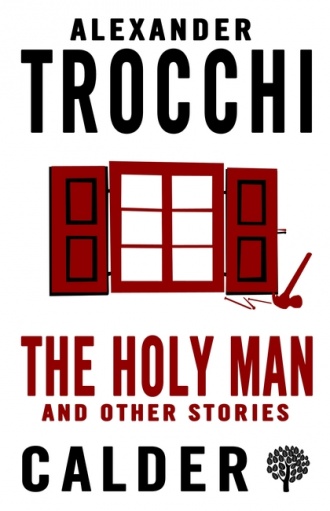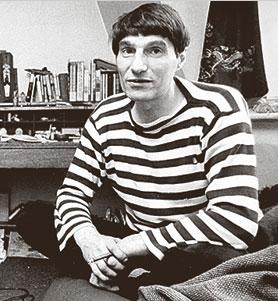This is the last article you can read this month
You can read more article this month
You can read more articles this month
Sorry your limit is up for this month
Reset on:
Please help support the Morning Star by subscribing here
“I THINK frankly that of what is interesting in the last, say 20 years in Scottish writing, I have written it all,” Alexander Trocchi remarked in 1962 in a now notorious spat with Hugh MacDiarmid at the Edinburgh Writers Conference.

Posterity has largely thought otherwise, Trocchi remaining a marginal cult figure in the history of 20th-century letters and barely warranting a mention in surveys of Scottish literature.
The works that comprise The Holy Man and Other Stories were originally compiled in a volume with the more apt title The Outsiders in 1961 along with his debut Young Adam, an existentialist mystery set on the canals outside Glasgow.
They depict a panoply of outcasts — a son returning reluctantly home from abroad for a funeral, a mysterious holy man who never leaves his room in Paris, a ragpicker scrabbling among the urban detritus to makes ends meet and a disgruntled office clerk trying to alleviate the tedium of working life.
Written in Trocchi’s limpid prose and freighted with an acute eye for squalid detail, this slight volume reads more as four skeletal, brusque character sketches in search of a more expansive plot, even while displaying a generous sensitivity to the unconventional protagonists.

The most accomplished story in the collection is the closing A Meeting which best encapsulates Trocchi's aesthetic and political project — writing against stifling and repressive bourgeois morality, tempered by an awareness of the limitations of language to do this, much like his literary idol Samuel Beckett.
Confessing that he barely remembers the day before as if it had been erased from his memory, its protagonist James narrates the monotony of a day in the office. Perplexed by the absurdity of this repetitive daily charade, his only escape is the furtive glances exchanged with female colleague Miss Lanelly.
A general ambience of disenchantment permeates the post-work drink. The frisson comes to nothing and Lanelly, out of the blue, declares: “I thought it would be different after the war. But it’s not, it’s the same. Worse, if anything.”
It was this fervent conviction that society should be different that fuelled Trocchi’s later political activism in both the Situationists and the London counterculture, agitating for what he called the invisible insurrection of a million minds.
These were some of his last works of fiction to be published before he retreated into literary silence, paralysed by his heroin addiction and perhaps demoralised by the failure of the political and cultural revolution he fought for.
Whether these stories in particular stand as the best in mid 20th-century Scottish writing is a moot point. But this collection will hopefully encourage people to discover the work of one of the most formidably intelligent and radical avant-garde writers Britain has ever produced.
Published by Alma, price £8.99.









